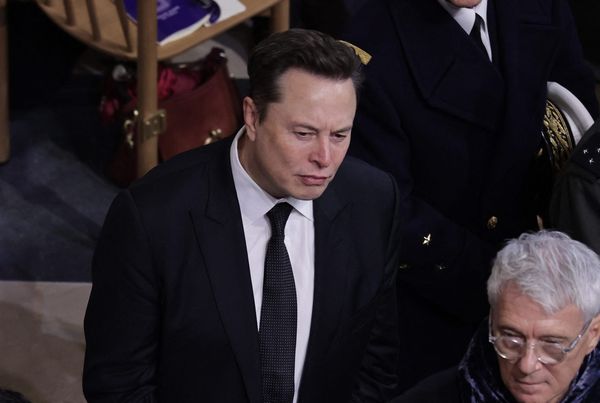
If the Chinese Communist Party (CCP) can find one silver lining to the Hong Kong protests which continue to dominate international headlines on a weekly basis, it is that the Huawei story has been pushed out of the public eye.
But it is only a matter of time before the issues around Huawei rear their heads again.
Since 2018, United States President Donald Trump has levied tariffs on Chinese products and prompted the CCP’s retaliatory measures. While the world increasingly focuses on the U.S.-China trade war, Huawei is caught in between the two superpowers. The China-based company has taken the global spotlight this year, largely due to major data security flaws in its 5G products.
5G services have started to roll out around the world. Huawei, the world’s largest manufacturer of telecommunications technology, would expect to take an important role in the global development of the new network infrastructure. However, the Chinese company’s close ties to the CCP have made many western countries reluctant to integrate their technology into a risky piece of infrastructure.

Huawei’s Ambiguous Background: Is it a State-owned Enterprise?
Huawei founder Ren Zhengfei (任正非) used to work as a military technologist for China’s People’s Liberation Army (PLA) before founding the company. Huawei’s early success was largely due to contracts secured from the Chinese government and the PLA, and there is plenty of rumor that the company has received significant amounts of state funding over the years.
Ren and Huawei owe a lot of their success to the Chinese state. Chinese companies do not endure unless they have a positive relationship with the CCP and the recent support Huawei has received in state media shows that they are still a darling of the Party.
For years, many have suspected that Huawei was, at least in part, a state-owned enterprise with direct links to the CCP. Huawei has done little to clear up the confusion besides suggesting that it was an employee-owned company. But new research has shed some light on the situation.
A recent research paper showed that Huawei’s operating company is 100 percent owned by a holding company, in which Ren only holds 1-percent ownership with the other 99 percent held by an entity named “trade union committee.”
In China, trade unions are controlled by the Chinese state. Members could be involved in a form of profit-sharing, but they have no right to the union’s assets.
In other words, as the researchers themselves have concluded, “if the ownership stake of the trade union committee is genuine, and if the trade union and its committee function as trade unions generally function in China, then Huawei may be deemed effectively state-owned.”
Huawei rejected these conclusions but has yet to make any clear contrary evidence public.

How Did Huawei Become a Security Threat?
In 2017, the CPP passed the National Intelligence Law, which required Chinese individuals and companies to assist the Chinese state in surveillance and intelligence operations if requested to do so. In other words, the CCP can “legally” ask Huawei to help spy on other countries or individuals.
In June, Huawei executive John Suffolk told the British parliament that Huawei has no obligation to comply with the spy law. However, companies that do not obey the CCP laws tend not to last very long.
And if Huawei is already state-owned as evidence suggests, the company has more reasons to install backdoors into its technology, allowing the CCP to access the data stored in Huawei’s devices and infrastructure.
China’s authoritarian Communist regime has a long track record of surreptitiously disrupting peace and stability around the globe. It is, therefore, hard for any country to trust Huawei’s integrity when the Chinese government poses an inherent threat.

Why Should Taiwan Care About Huawei?
In 2013, Taiwanese government departments have been banned from purchasing Huawei and ZTE equipment.
Executive Yuan will soon release a blacklist of Chinese companies and products, banning them from central and local government agencies, schools, and government-funded organizations. As of now, the Industrial Technology Research Institute is the only government-affiliated body to proactively introduce such a ban.
While the U.S. has banned domestic companies from exporting to Huawei, the same restrictions are not in place in Taiwan. They are being considered but given the number of Taiwanese companies that work with Huawei and the depth of their involvement, such a move is likely to have a profound effect on several companies and possibly the Taiwanese economy as a whole.
One such company, Taiwan Semiconductor Manufacturing Company (TSMC), has already openly assured Huawei that it will continue to do business with it despite the U.S. ban.

At the height of the Huawei controversy earlier this year, the Taiwanese government still had no plans to introduce a blanket ban on Huawei devices. Huawei’s products have continued to grow in popularity among Taiwanese due to their low prices.
After the U.S.-imposed export ban resulted in Google preventing Huawei from updating Android on their smartphones, two of Taiwan’s major mobile networks, Chunghwa Telecom (中華電信) and Taiwan Mobile (台灣大哥大), announced that they would stop selling Huawei devices. But that decision was motivated by Google rather than national security concerns.
Taiwan’s relationship with Huawei and Chinese technology is at a crossroads, and the future of Taiwan's cybersecurity will largely depend on the outcome of the presidential election in January 2020.
Huawei's low-cost economic benefits are no longer sufficient for Taiwan to overlook the security risks it poses. Taiwan would not be the first country to legislate such a ban and it would undoubtedly earn praise from the U.S., a critical national security ally.
It is only a matter of time before the next Huawei scandal appears. When it does, the Taiwanese government should be ready to act.
READ NEXT: The U.S.-China Trade War Drives the World Toward Crisis
TNL Editor: Daphne K. Lee (@thenewslensintl)
If you enjoyed this article and want to receive more story updates in your news feed, please be sure to like our Facebook page below.







